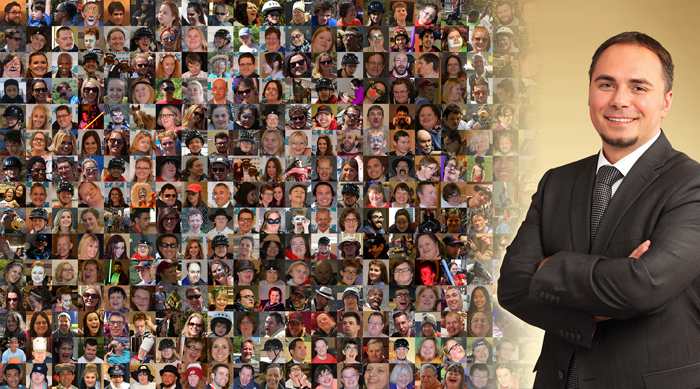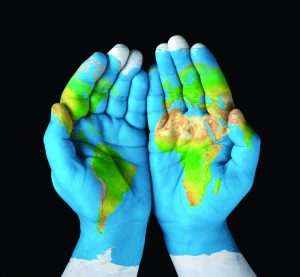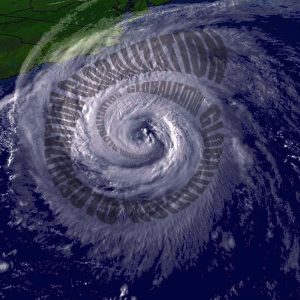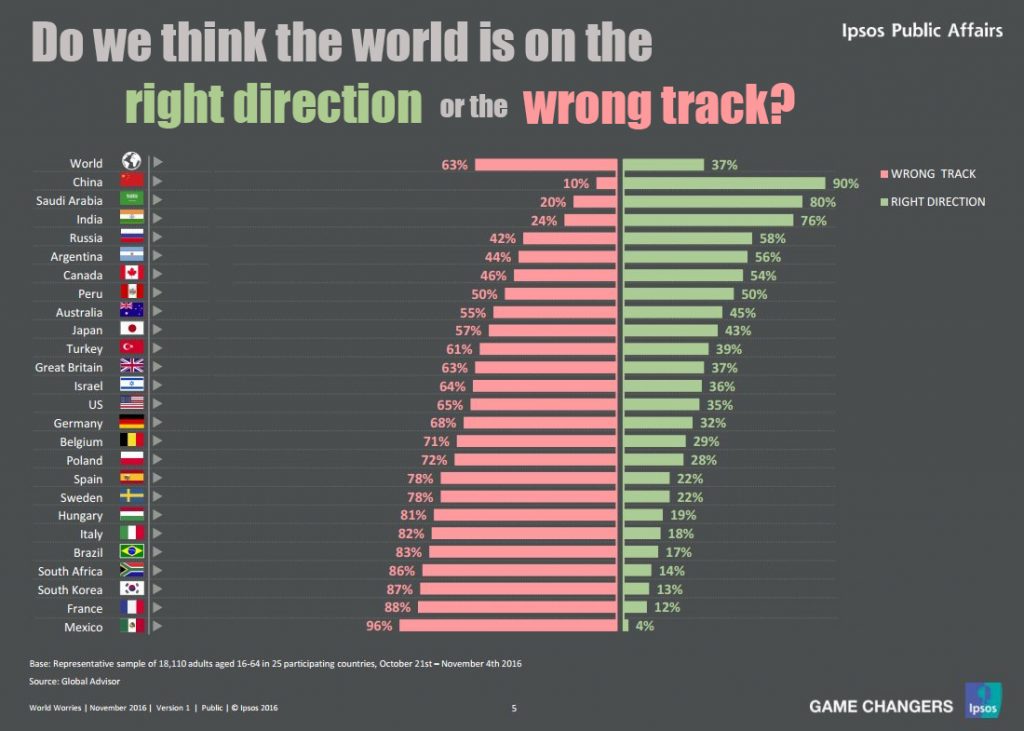
If we are to Reflect on the Past, and Think about the Future, let’s focus on some of the trends of our current times. The human population has reached 7.4 billion, and it is estimated to increase to 11.2 billion by 2100. The environmental effects of human actions have accumulated drastically during this era. For the first time, human-generated environmental change threatens the future of our species, if not the entire planet. The ability of humans to extract more energy and resources from a given area of the earth has decisively increased. Politically, the world has been affected by great political turbulence and wars in which the risk of nuclear confrontation has been present. The global economy has grown faster than ever before in history. More economic growth has occurred in this era than in all previous eras of human history combined. Yet, the ability of economic globalization to deliver better lives for all has been deeply compromised by its contradictions, especially boom and bust cycles and wider social inequality. New technologies of transportation and communication have made it possible not only to link all parts of the world in real time, but also to connect individuals more intimately and inexpensively. Thanks to the new technologies of this era, governments and corporations have acquired unprecedented capacities to intervene in the lives of citizens, the better to observe, document, control, and organize multiple aspects of life. The continued escalation in the costs of military technology and its increasing development has made warfare vastly expensive for all states. Simultaneously, the costs of basic administrative, educational, and welfare services to unprecedented numbers of people have driven many states in the less developed world to the brink of collapse. In the gap between the capacity of states to organize and the growing global instability have come all sorts of terror groups. The race between order and disorder can be observed widely around the world.
 The world has become increasingly contradictory and paradoxical. For some, rapid economic growth and globalization have offered opportunities. For others they have meant the destruction of cherished lifeways and ancient traditions. While many people got wealthier, many more experienced declining standards of living, nutrition, and health. The varied and often contradictory impact of change explains why Era Nine has been an era of constant military, political, and cultural conflict.
The world has become increasingly contradictory and paradoxical. For some, rapid economic growth and globalization have offered opportunities. For others they have meant the destruction of cherished lifeways and ancient traditions. While many people got wealthier, many more experienced declining standards of living, nutrition, and health. The varied and often contradictory impact of change explains why Era Nine has been an era of constant military, political, and cultural conflict.
If you travel the world, you will find these trends to be true. If you go to Hawaii, you will find that the locals feel they are the minority now, and all their cherished culture is being lost. Many other parts of the world deal with similar problems. In Australia and New Zealand, the housing market is becoming increasingly out of reach for the locals, due to the foreign direct investments. This is true to many other parts of the world. There are many imbalances being built left and right. Inequality is a topic that scholars have discussed for many years now, and warned that something will have to give and change. Unfortunately, the trend has not skipped a beat.
One other important event of our times occurred 25 years ago in Europe: The Fall of the Berlin Wall. We still deal with its aftermath. I will reference my personal perspective on the change in Central-Eastern Europe in 1989, from socialism to capitalism. There is a huge difference between the two systems. One of my friends, a world renowned economist, put it metaphorically: the difference between socialism and capitalism is similar to the difference between a Zoo and a Jungle. He associates socialism with a Zoo, because socialism is concerned with redistributing resources from the rich to the poor to ensure everyone has both equal opportunities and equal outcomes – there are nice, tall, safe walls to protect everyone. Everyone has a house, food, education, jobs, and doctors. However, capitalism is like a Jungle. Capitalism is unconcerned with equality. It is argued that inequality is essential to encourage innovation and economic development. In capitalism, only the best, most driven, most powerful survive. The vicious instincts of survival lead our economies, creating an unforgiving economic environment. Well, a wild animal was born in, or that has lived for many years or a lifetime, in a Zoo, has a very low survival rate if taken back to the wild. In 1989, when our world realities tore down the socialistic systems in Central-Eastern Europe, nobody warned the millions of people living behind the walls of socialism that capitalism is coming, and that it is very different. No one helped them get educated and trained ahead of time, to survive and succeed in the new system. They simply tore down the walls. When the wall came down, the capitalistic instincts entered that part of the world. Well-trained, capitalistic driven businessman, unfortunately, left behind a generation that suffered the consequences of a very sudden change. I believe the next generations should learn that abrupt changes in any political and economic systems require lots of preparation, so that we instill the least amount of damage to people that are being affected by that change. However, I believe that now, 25 years since the change in the political and economic system in Central-Eastern Europe, people finally understand capitalism. They are ready to embrace its values, and create their own future, and not rely on a future that was promised to them 25 years ago.
I hope that we learn from our own mistakes in history as a society, and continually make the world a better and fair place for all. I believe we have come very long way as humans. We now need to learn from each other, share values, and teach the skills and values that we need in today’s world in order to succeed.
As globalization happens, I believe we should listen to each other’s views, values, cultures, and ideas. We should share those freely, and not try to force our own ideas, views, values upon people. I believe we need to find value in both sides, and understand each other. We must not rule out other people’s views before even having an opportunity to hear them out. I believe we can make friends, and not enemies, by listening to and sharing those values and views. I believe that people can forget what we say, people sometimes forget what we do, but people will never forget how we make them feel. That’s how we should build relationships and friendships, by making people feel valued, respected and supported.

We live in a very complicated world; the acceleration of globalization has changed everything. First we had the free movement of goods, then ideas, and now the free exchange of people; however the momentum may stop at the free exchange of people. Bill Clinton once called globalization “the economic equivalent of a force of nature, like wind or water”. Globalization is powerful, but can be inconstant or even destructive. Moving goods became cheap over time; however until the very end of the 20th century, moving ideas was expensive. Before the invention of the internet, an international call was $5 per minute, or in many cases, more. Since the 1990s, globalization has changed radically, as the internet has lifted the cost of moving ideas, and fueled the second wave of globalization.
Technology has changed everything around us and is constantly changing everything. One thing is certain, not even the future is what it used to be. In January, I travelled the world to find talented people who can join our team this summer to provide amazing services to our campers and students at Camp K. We live in a very diverse and interconnected world, people have moved around in the world, in search for new opportunities, new dreams, a better life, new adventures, love, new beginnings. Others have moved around for education opportunities, work, or simply out of curiosity. We live in a global world. In all the cities I travelled to, London, Melbourne, Sydney, New York, Los Angeles, Auckland, Washington D.C., Edinburgh, Warsaw, Manchester, Amsterdam, Krakow, Bucharest, San Francisco and others, I found a very diverse population, from all corners of the world, speaking all sort of languages, representing all different cultures. In my opinion it will be impossible to stop globalization’s third wave, the free movement of people.
We need to learn how to live, work, and play in the new, diverse, and inclusive world. We need to teach values that inspire, respect and support all across the board, as our neighbors, co-workers, and friends will be of diverse backgrounds. It is going to be very hard if not impossible to reverse globalization. Recently we have heard stories of immigrants being deported, after many years living in our country. After they go home, they find that their country has changed dramatically, and the lives they once cherished and enjoyed are no longer there. They became strangers in what used to be their lives. They took a leap of faith, dedicated to this country, worked to build a new life, embraced our values, and now when they are forced to go back the lives they left behind, but are no longer there for them. It is another tragedy of our times.
The curse of an immigrant is that somehow they belong to two worlds. They left behind a life they cherished and now they live a new life in a new world. They embrace the values of the new world, however, somehow they always keep those cherished memories with them from the former life they lived in the other country. I think that is because we tend to forget bad memories and only keep good memories, so we can’t remember all the hardships, but only the happy times. Some go back to their birth countries often, some go once every so often, and some never do. Each time they go, they realize they are now just a tourist, a visitor. The more time goes by, the more the life they left behind is no longer there. If ones think that, after living for so long in a different country, it is easy to return to the old country, they are wrong. Many immigrants in today’s world deal with this paradigm. I find stories everywhere I go. In Auckland, New Zealand I met a guy who left London a decade ago, married and had a child in New Zealand with a local citizen. During this time, he didn’t go home much, however now he was melancholic towards going back home, and is thinking he will move back. I think he will find a different London today than what he left behind a decade ago. Recently, I read about a story of an immigrant from India, a high-level executive engineer, working at Google in San Francisco for over a decade now. She had an amazing job, in her own words, she “got to travel all over the world, attended conferences, it was great; the team was great; it was a really good job”. However, in our current fast-paced, busy society, she felt lonely. She was part of all kinds of social clubs, and attended many parties; however she still felt lonely, and decided to move back to India, because she was becoming sadder and sadder. She felt exhausted from living in San Francisco. It is a paradox of our society; we keep ourselves extremely busy so we don’t have time to face our realities, and emotions. She left U.S. for India, for “less pay, but more … everything”, in her own words. Her advice for U.S immigrants is “don’t torture yourself” but “to trust your gut”. It will tell you if the U.S. is your true home, or if “it’s not your destiny”. Again, I believe these feelings are felt all over the world as globalization accelerates.
Recently I read an article that was based on a recent poll that concluded that we need to add one more thing to the list of things dividing left and right in our country: that we can’t agree what it means to be an American. A new survey found that Republicans are far more likely to cite a culture grounded in Christian beliefs and the traditions of early European immigrants as essential to U.S. identity. Democrats are more apt to point to our country’s history of mixing of people from around the globe, and a tradition of offering refuge to the persecuted. Patrick Miller, a political science professor at the University of Kansas who studies partisanship and polling, said the results reflect long-standing differences in the U.S. between one camp’s desire for openness and diversity, and another’s vision of the country grounded in the white, English-speaking, Protestant traditions of its early settlers.

The latest study to assess happiness found that U.S. has dropped one more spot in the rankings around the world. We are now number 14, with Norway taking first place. As a matter of fact, 4 out of the first 5 countries are Northern European countries. The study, which measures social factors alongside economic data, points to the limitations of financial factors in achieving happiness. “This report gives evidence that happiness is a result of creating strong social foundations. It’s time to build social trust and healthy lives, not guns or walls. Let’s hold our leaders to this fact,” said Jeffrey Sachs, director of the Sustainable Development Solutions Network, which produced the report in association with United Nations.
“The predominant political discourse in the United States is aimed at raising economic growth, with the goal of restoring the ‘American dream’ and the happiness that is supposed to accompany it. But the data show conclusively that this is the wrong approach,” said Sachs, in a section of the report entitled “Restoring American Happiness”. “The United States can and should raise happiness by addressing America’s multi-faceted social crisis— rising inequality, corruption, isolation, and distrust—rather than focusing exclusively or even mainly on economic growth, especially since the concrete proposals along these lines would exacerbate rather than ameliorate the deepening social crisis.”
Mircea Divricean
President & CEO
Kostopulos Dream Foundation

Comments